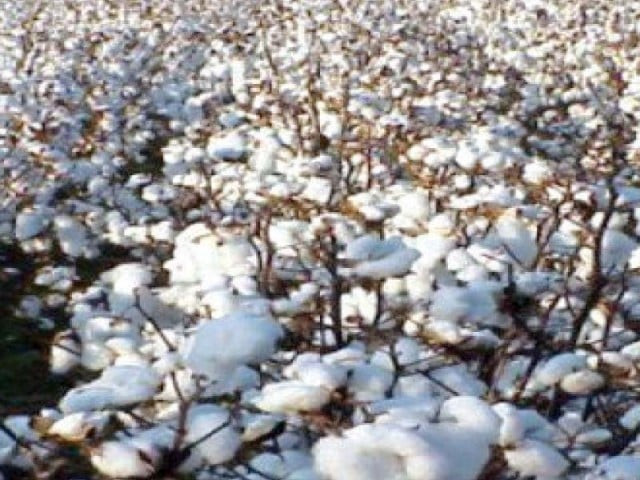Cotton farmers suffer Rs52b loss as mills pay lower prices
Ministry’s report says growers switched to other crops due to the heavy loss

Ministry’s report says growers switched to other crops due to the heavy loss. PHOTO: FILE
Owing to that reason, the farmers were compelled to grow other crops like sugarcane instead of cotton. Resultantly, the area planted with cotton had been continuously shrinking, the ministry said.
Besides this, according to the ministry, the quality of cotton has dropped considerably because of a lack of compliance with the Cotton Control Act 1996, non-implementation of the quality-based seed pricing system and no capacity-building of cotton pickers.
The ministry, in a report submitted to high-ups of the Pakistan Tehreek-e-Insaf (PTI) government, said the farmers were not getting proper prices for their crop, adding that no assurance was given by the government in that regard at the time of cotton harvest.
Govt agrees to stop cotton imports during crop picking
The cotton crop has a share of 1-1.7% in the overall gross domestic product (GDP) - total size of the economy - of the country. It caters to 74% of the domestic cotton requirement and provides key raw material for the textile industry. It also engages a large workforce in various activities.
However, the cotton crop has been encountering many challenges and issues. Its production and yield have decreased substantially over the past many years. There are multiple reasons for these issues which include climate change, lack of research and development, absence of a proper policy, high input costs, lack of latest seed technology, no price and profit assurance, marketing issues, unavailability of quality seeds and no support price for the crop.
The Ministry of National Food Security recalled that the 1984-92 period was a golden era for cotton production. After that, the harvest has been continuously declining, especially in Punjab.
Past governments were least interested in overcoming the challenges faced by the cotton growers. Farmers were confused in the selection of good-quality cotton seeds and pesticides as a large number of varieties were available in the country, the ministry said.
According to officials, the 2013-18 period - when the Pakistan Muslim League-Nawaz (PML-N) was running the government, was the worst as cotton harvest faced a historic decline. The PML-N government provided incentives for powerful industrial lobbies like textile manufacturers, who were allowed duty-free import of cotton, and paid little attention to shielding the interest of farmers. A report presented to the cabinet revealed that cotton production had been virtually stagnant since 1991-92 and fluctuated in a range of 10 to 12 million bales. The output fell to 9.9 million bales in 2015-16 compared to average consumption of 15 million bales, making Pakistan a net cotton importer.
These reasons brought down profits for the cotton farmers and led to 20% reduction in the area planted with the crop from 2004 to 2016.
The past governments, especially the PML-N, had been pro-industrialists and farmers were left at the mercy of textile millers. Even, the cotton commissioner had been placed under the control of textile ministry to safeguard the interest of textile barons.
The present government has also so far been pro-industrialists as it has given Rs25 billion in subsidy to the textile millers on gas supply. It also gave a relief of Rs29 billion by waiving duties on cotton import.
In addition to these, the government waived Rs40 billion in gas infrastructure development cess out of the Rs80 billion due to be paid by the textile millers.
Published in The Express Tribune, May 7th, 2019.
Like Business on Facebook, follow @TribuneBiz on Twitter to stay informed and join in the conversation.



















COMMENTS
Comments are moderated and generally will be posted if they are on-topic and not abusive.
For more information, please see our Comments FAQ